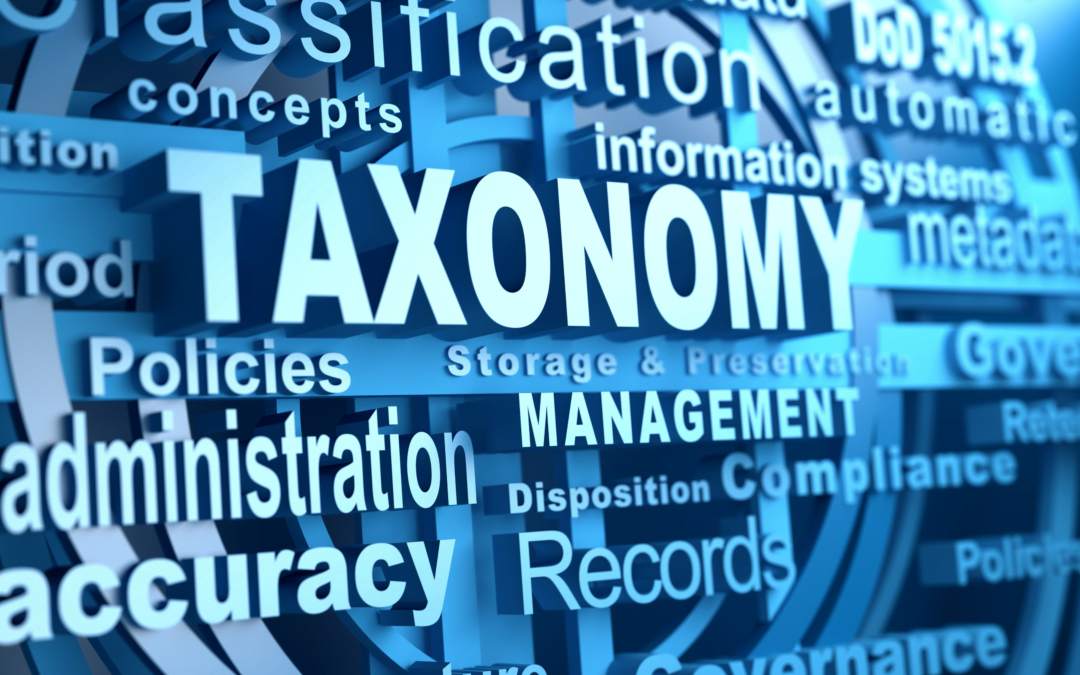What Exactly Is A Data Taxonomy?
Data taxonomy is the classification of data based on its characteristics and relationships. It is a way of organising data so that it can be more easily understood and used. Data taxonomy can be used to classify data based on its type, such as numerical, categorical, or ordinal data, or based on its purpose, such as transactional data or reference data. Data taxonomy can also be used to describe the relationships between different types of data, such as the hierarchy of data elements within a database.
Data Taxonomy And Keeping Data Clean
One of the main benefits of data taxonomy is that it helps to keep data clean and organised. When data is organised in a logical and consistent way, it is easier to locate and use specific pieces of information, and it is also easier to understand the overall structure and organisation of a dataset. This can be particularly important when working with large or complex datasets, as it can be time-consuming and difficult to make sense of data that is disorganised or difficult to navigate.
Improving Accuracy And Reliability Of Data
In addition to helping to keep data clean and organised, data taxonomy can also be used to improve the accuracy and reliability of data. By establishing clear definitions for different types of data and the relationships between them, data taxonomy can help to reduce the risk of errors and inconsistencies in the data. This can be especially important when data is being shared or used for decision-making purposes, as accurate and reliable data is essential for making informed decisions.
Data Taxonomy Facilitates Data Interoperability
Another reason why data taxonomy is important is that it can help to facilitate data interoperability. When data is organised in a standardised way, it can be more easily shared and used by different systems and applications. This can be particularly useful in industries where data is shared across different organisations or used for a variety of purposes, as it can help to ensure that data is consistent and can be easily understood by different users.
Why Having Clean Data Is So Important
There are several reasons why clean data is so important.
First and foremost, clean data is essential for making accurate and informed decisions. Whether you are analysing sales trends, identifying opportunities for growth, or evaluating the performance of your business, clean data is the key to understanding what is happening and what needs to be done. If the data you are working with is dirty or unreliable, it can lead to poor decision-making, which can have serious consequences for your organisation.
Clean data is also important for maintaining the integrity and reputation of a business or organisation. Inaccurate or unreliable data can lead to mistakes or miscommunication, which can damage relationships with customers, partners, and other stakeholders. By ensuring that your data is clean and accurate, you can build trust and credibility with those you work with, which is essential for building and maintaining strong relationships.
Clean data is essential for optimising the performance of a business or organisation. By analysing and understanding clean data, you can identify areas where you can improve efficiency, reduce costs, and drive growth. This can be especially important in today’s fast-paced and competitive business environment, where the ability to quickly adapt and respond to changing circumstances can be the difference between success and failure.
AICA’s Role In Keeping Your Data Clean
AICA specialises in helping organisations maintain the quality and integrity of their data.
AICA’s algorithms are able to identify and correct errors in the data, such as incorrect or missing values, duplicates, and outdated information. This helps to improve the accuracy and completeness of the data, which is essential for making informed business decisions.
In addition to using algorithms to clean data, AICA also implements taxonomies to ensure that data is structured and organised in a consistent and logical manner. This helps to improve the efficiency of data management processes and makes it easier for users to access and analyse the data. By combining algorithms and taxonomies, AICA is able to provide a comprehensive data cleansing solution that helps organisations maintain high-quality data.
